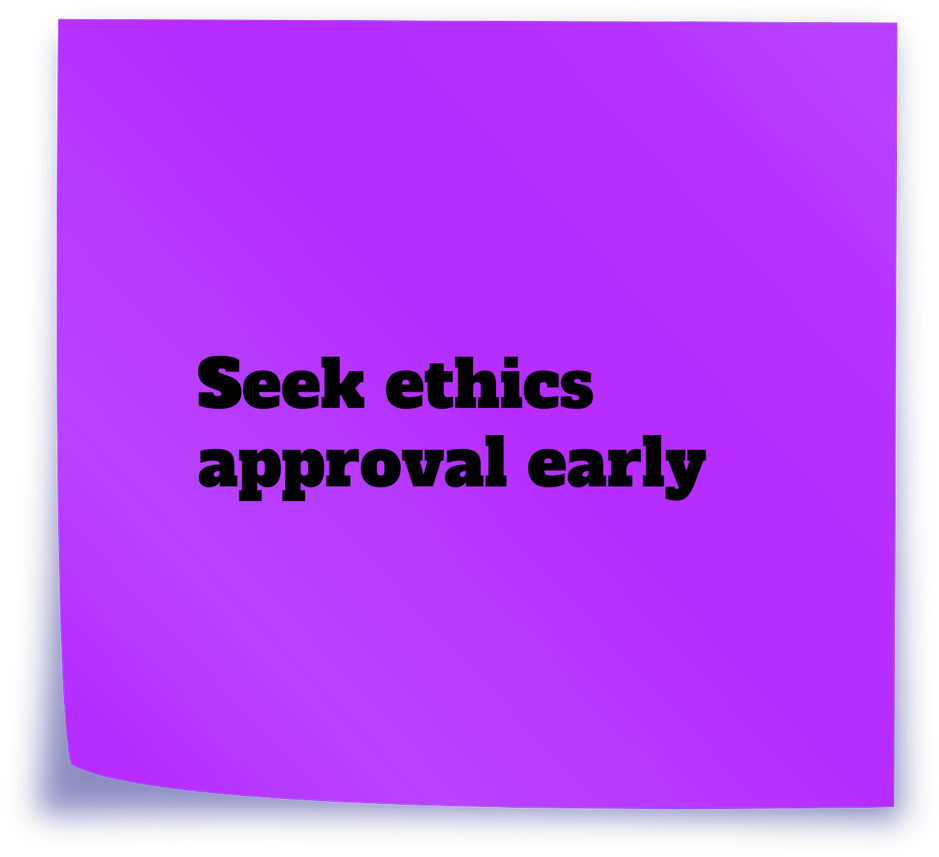
I wasn't always in the honors program. Like many of you, I applied to the University of Alberta straight out of high school into a program I thought sounded interesting. However, I am one of the lucky ones who didn't have to change their program to find their niche. I hit the jackpot by applying to sociology, a discipline which felt like both a perfect fit and a challenge for me.
In my third year, I received a department newsletter advertising the honors program and I thought, why not? Joining honors meant I would not need to complete a minor and could take more sociology courses, or even electives, instead. Secondly, I've always wanted to write a book and was under the somewhat misguided impression that honors would help (ie. force) me to achieve this. Now that I'm in my final semester of the honors program, I have a much better understanding of what an honors thesis looks like.
In this article, I share 10 hard-earned pieces of honors thesis wisdom, including how to find a supervisor, choose a topic, and structure your paper.

An honors thesis is basically just a long research paper. Depending on the department, your paper may be required to be anywhere from 40-60 pages long. While this is likely longer than anything you've written before, you get the entire last year of your undergrad degree to write it and plenty of guidance from your supervisor. Some departments may require that your thesis includes original research (such as interviews or data you collect yourself), while others may allow you to conduct a synthesis of existing research on the topic and apply it to new cases. Finally, you may be required to present or "defend" your thesis to a panel of professors or simply submit a hardcopy to your department.
Most honors degrees require that you maintain a certain level of academic performance in other courses while writing your thesis. Some have honors seminars you can take for credit to guide you through the research process. In fact, the honors essay itself is usually for credit. I received 3* in fall term for researching my thesis, and 3* this term for writing my paper. Given the high demands of the honors program, many students choose to take a reduced course load while writing their thesis.

Start by thinking about what general topics you're interested in. In your final year, you're sometimes going to find yourself staying in for a hot date with your thesis rather than socializing with friends. Having a personal interest in your topic will help you stay motivated and maintain momentum. Initially, I thought I needed to have a complete and specific topic in mind before approaching potential supervisors. However, it's their job to help you narrow it down! In my first meeting with my supervisor, my topic transformed from "something to do with Indigenous food" to "understanding Indigenous food sovereignty in urban Canada."

All good things begin with a faculty search. If you don't already have an idea of who you want to work with, Google your department's list of faculty members. The faculty list will indicate each professor's research interests and give you an email at which to contact them. If nobody seems to be studying the area you're interested in, try contacting your department's undergraduate advisor. They will be familiar with their colleague's work and able to recommend supervisors.
Once you've found a potential fit, don't be afraid to introduce yourself via email. I had never taken a class with my supervisor but loved his research interests and decided to reach out. Best practice is to include a formal greeting, explain your general research topic and why you're interested in it, identify any theories or methodologies you'd like to work with, and ask to meet in person to see if the two of you would be a good fit for the project. Professors are paid to mentor honors students like you and will likely direct you to someone else if they're not the right person for the topic.

Thankfully, you're not graded entirely on your final thesis paper. Many departments allow you and your supervisor to decide on a grading scheme that works for your project. Your final grade may assign marks for the regular meetings you have with your supervisor or an initial draft. Including different pieces in the grading scheme puts more emphasis on the process of research and ensures that your final thesis isn't all or nothing.

If you're planning to do original research with human subjects, you'll need ethics approval from one of the University's four research ethics boards (REBs). Ideally, you'll want to start planning and writing your application one term before you start your research. Your application will vary depending on which REB your research falls under but you will likely be asked to describe your research methods and identify potential risks and benefits to participants in your study. At the undergraduate level, your supervisor will likely have to sign off on your application. You absolutely cannot start your research until you've received ethics approval.

Most theses will begin with a "Background" session, which provides a brief history of the topic you're studying, followed by a "Literature Review," a discussion of the current research on your topic. This is where you introduce the main theories and theorists in your area and the studies that inspired your work. Your literature review will help you identify gaps in the current research on a topic, which you may try to address in your own research. A common starting point for thesis research is to compile an "annotated bibliography" which lists and describes articles you've read on the topic. An annotated bibliography is a useful way to keep track of all the articles you read so you can refer back to them later.

Research at the university has taken many forms, from mathematical papers to beadwork. Your searches may include books, journal articles, popular media sites, and discussions with the community. The shape your research takes depends on your supervisor, methodology, ethics board, and departmental requirements. You probably won't be able to stop yourself from constantly talking about your thesis, so embrace it! Conversations with professors, peers, and family can be just as illuminating as your "official" research.

Imagine you have to write a 40-60-page paper…yikes. Now imagine you have to write four 10-page-papers. That's more what an undergrad thesis is like. You'll have different chapters, like your background, literature review, methods, and discussion to fill the pages up. Creating an outline will help organize all your ideas and evidence into a digestible roadmap, allowing you to sit down and write each section at a time. Here's what my basic outline looked like:
- INTRODUCTION (2 pp.)
A. Broad statements
B. Research questions - BACKGROUND (8-10 pp.)
A. History of the topic
B. Contemporary context - CONCEPTUAL FRAMEWORK (2 pp.)
A. Methodology
B. Basic principles and assumptions - LITERATURE REVIEW (10-15 pp.)
A. Past studies
B. Research gaps - FINDINGS AND DISCUSSION (~20 pp.)
- CONCLUSION (~2 pp.)
- REFERENCES

While writing an honors thesis is a fantastic way to do your own research, it does not have to be a ground-breaking contribution to the literature. At the undergrad level, the thesis is more about learning the process of academic research to prepare you for further work. With that in mind, don't pressure yourself to get it perfect on your first draft. Instead, dedicate a day of the week to your thesis or commit to writing at least two pages a day, and you'll get it done in no time. Drafts should be a form of communication with your supervisor. Send email updates often so that your supervisor can keep you pointed in the right direction.

While the word "present" understandably scares many students, this may actually be the easiest phase of the honors thesis because it means you've FINISHED IT. Depending on your supervisor, you may be asked to present or "defend" your work to a mini panel of professors or submit your thesis to a second reader for review. You may also be asked to present a poster at a campus research event such as FURCA (Festival of Undergraduate Research and Creative Activities) or a departmental conference. If presenting is your thing, the Students' Union and the Undergraduate Research Initiative (URI) provide grants to help you attend national and international conferences. Finally, you could consider submitting your thesis to one of the university's many peer-reviewed undergrad journals.
Conclusion
Writing an honors thesis has been a whirlwind but worthwhile experience. Not only did I learn research and writing skills, but I gained personal insight into how I want to do research in the future. My research on Indigenous food sovereignty exposes me to land-based research methodologies which encourage me to recognize my roots and form relationships with the people and places that matter. I'm working to be an ally in decolonization and make meaningful changes towards social and environmental justice in Amiskwacîwâskahikan and my second home, New Zealand. I see my thesis as a starting point for further research and activist work. I'll be presenting my research at FURCA on March 11, 2020 and the Sociology Graduate Student Conference on April 27, 2020. I hope that putting my research out there will show other students that this work exists and encourage them to take it up in their own studies.
Freya is in the final term of her BA Honors Sociology degree and is the VP Academic & Mentorship of the Sociology Undergraduate Students Association (SUSA). She is writing her honors thesis on Indigenous food sovereignty in urban Canada.